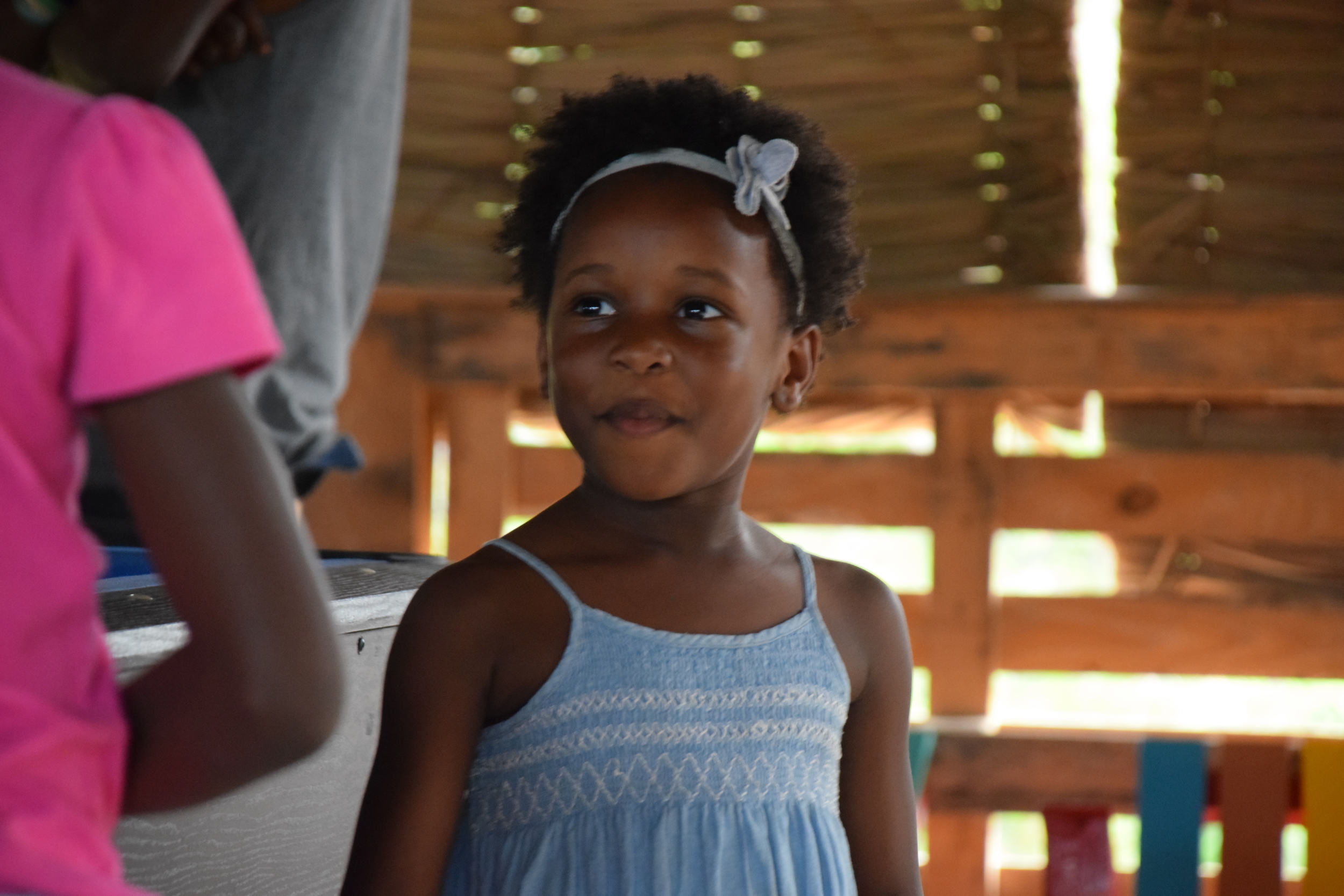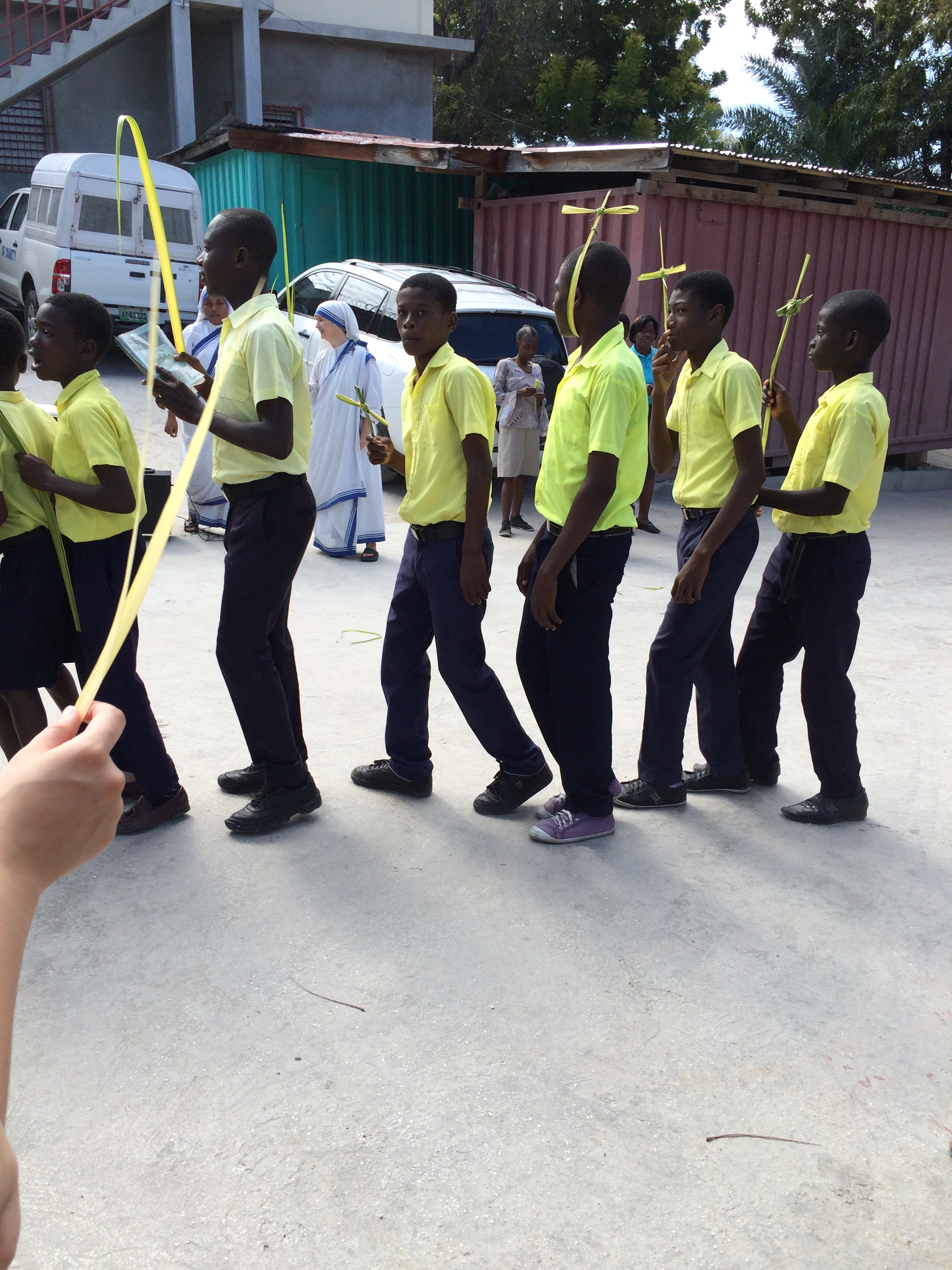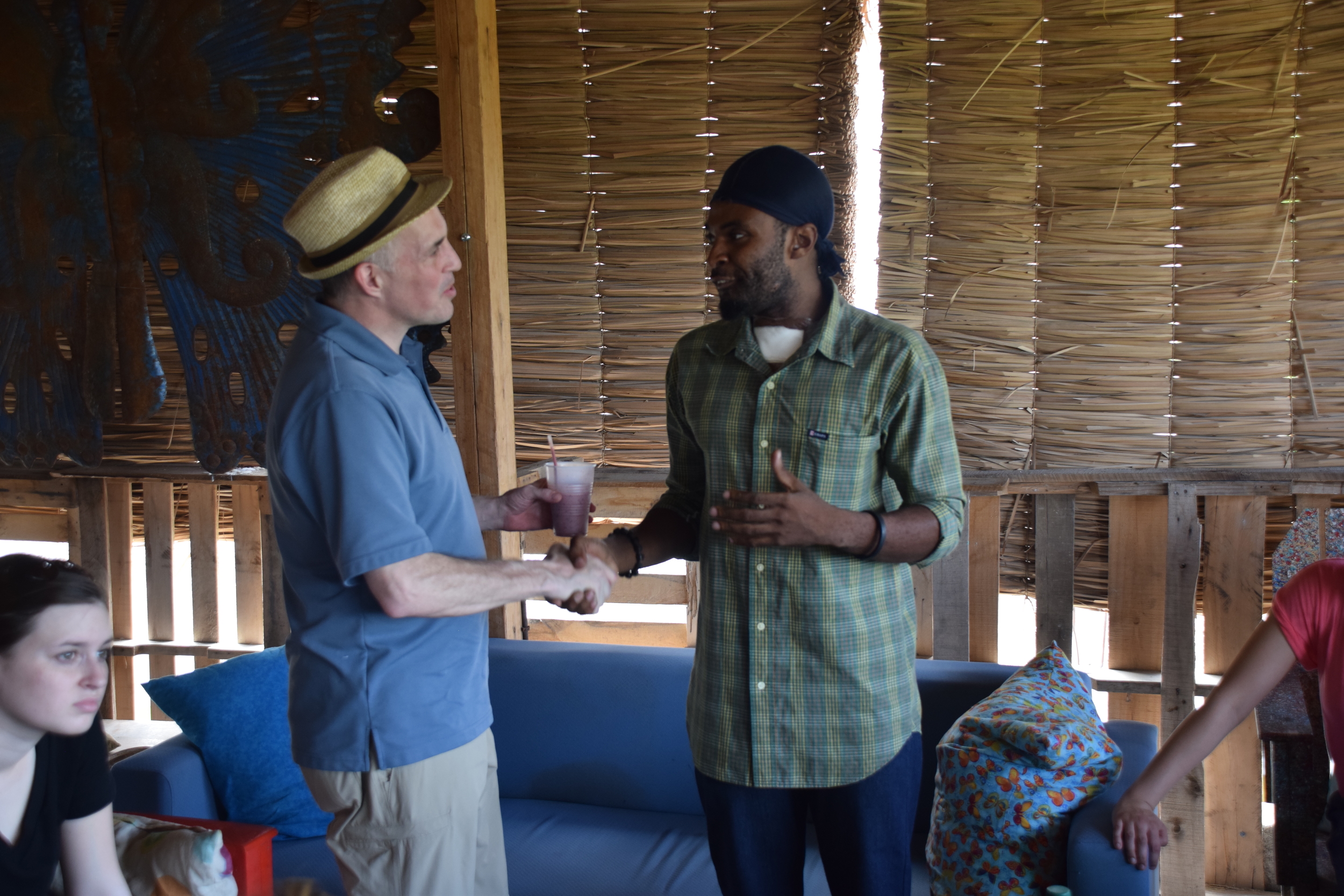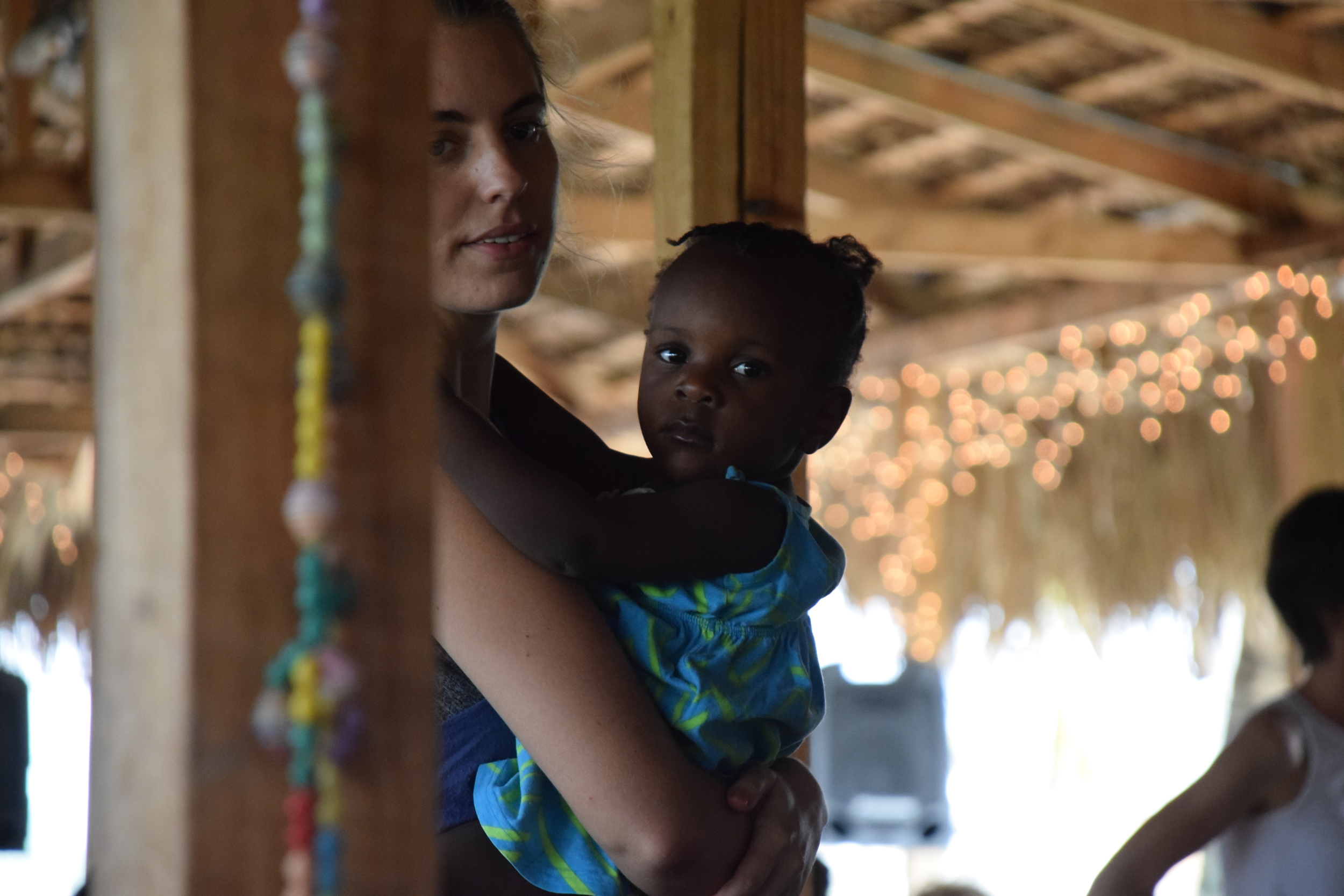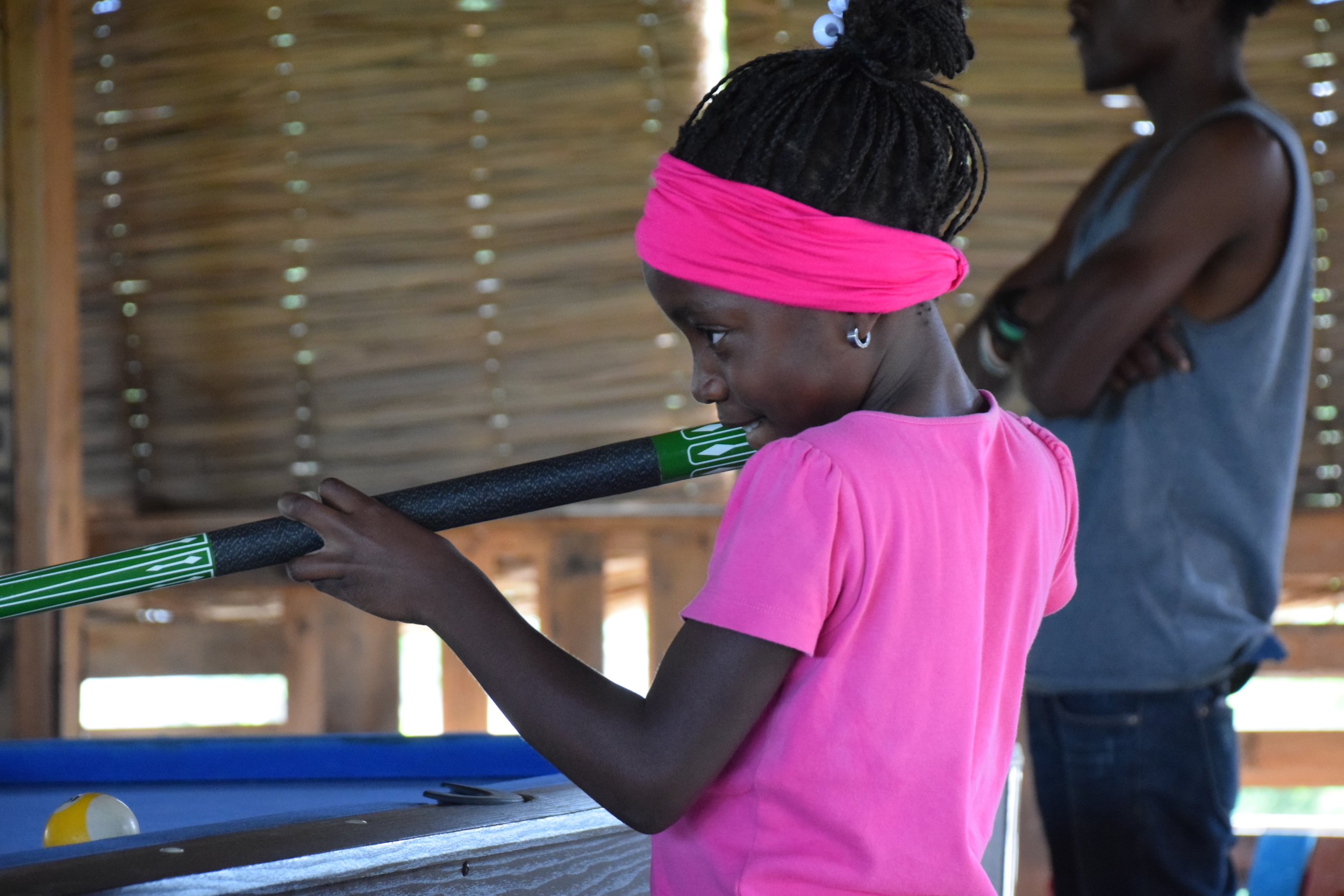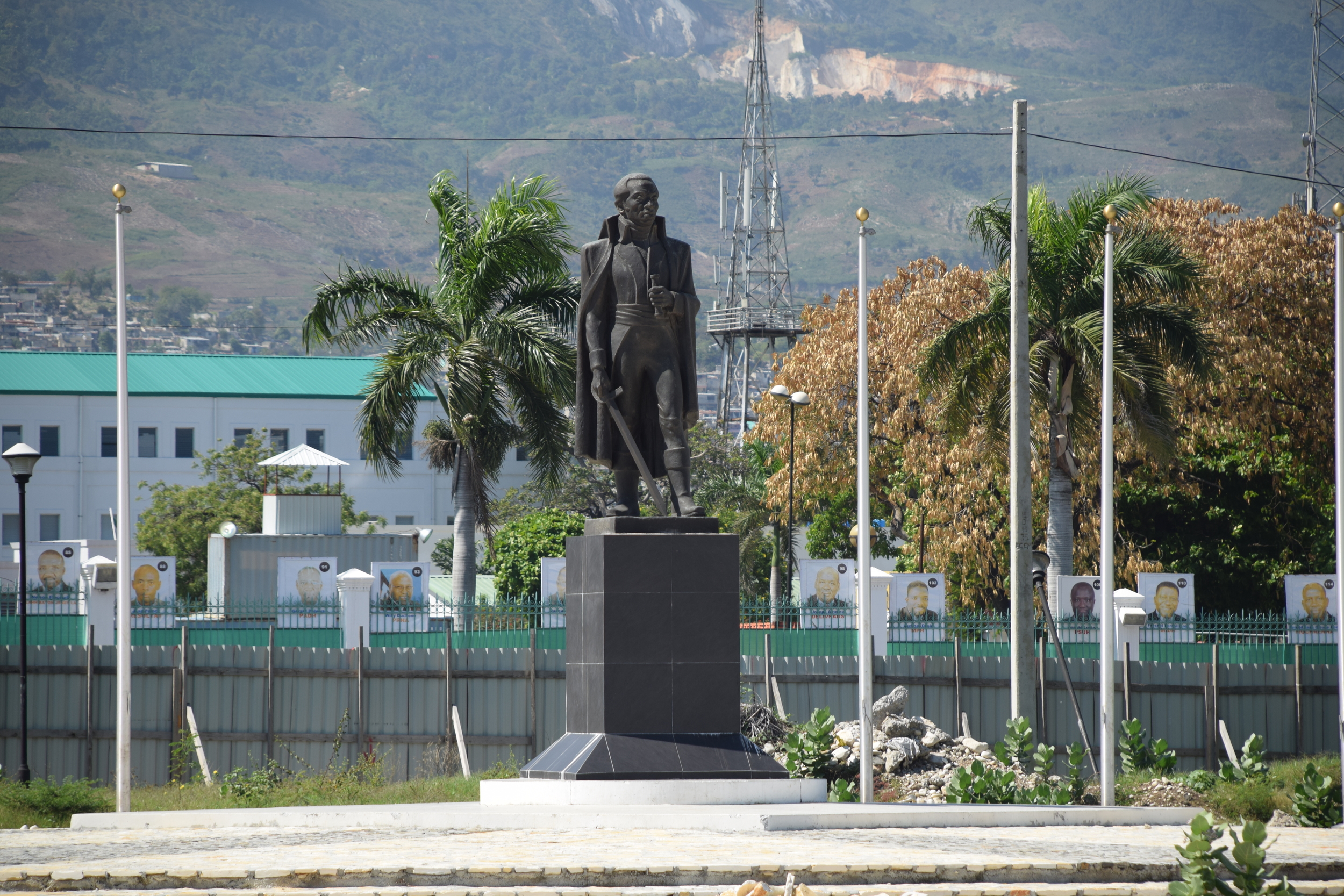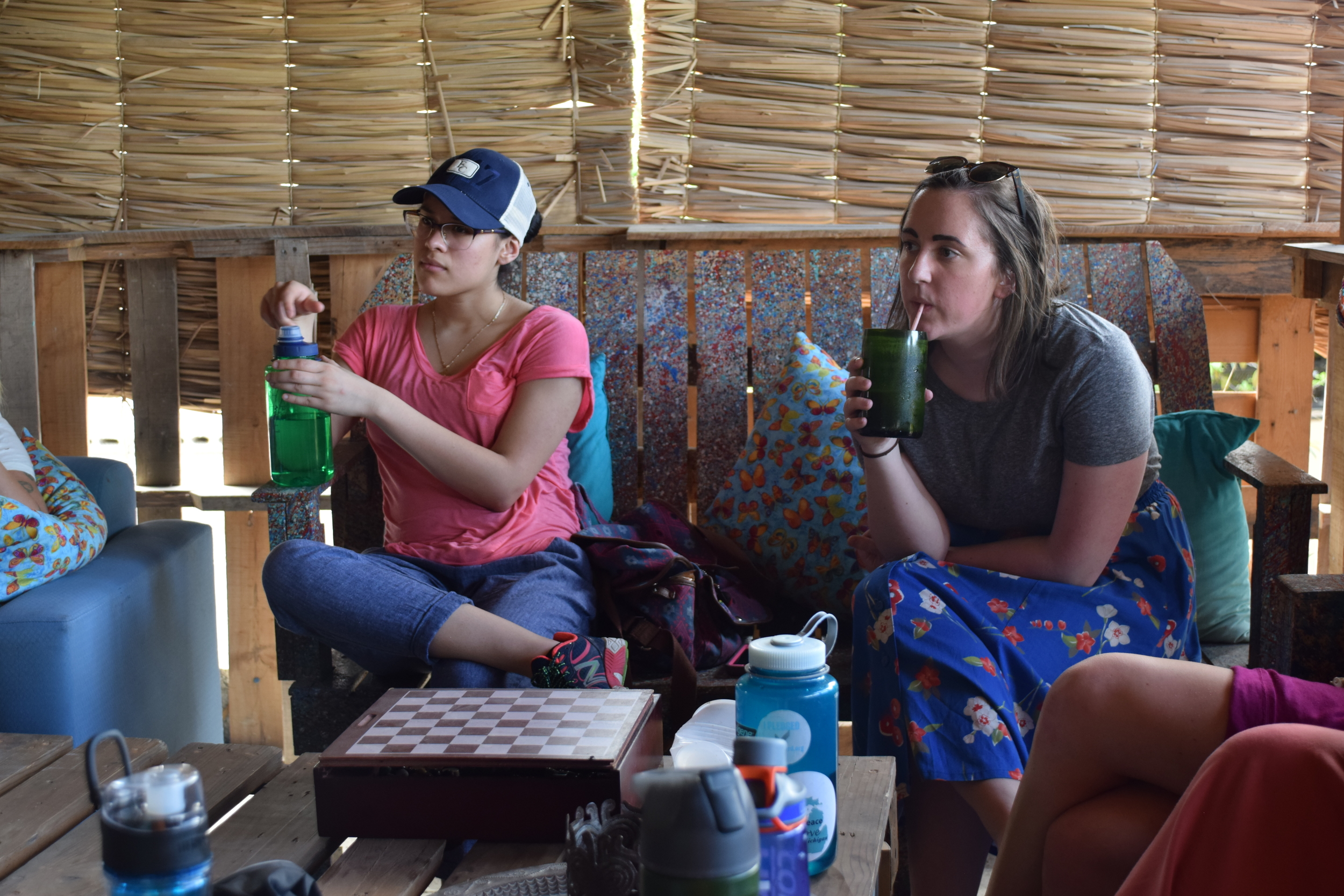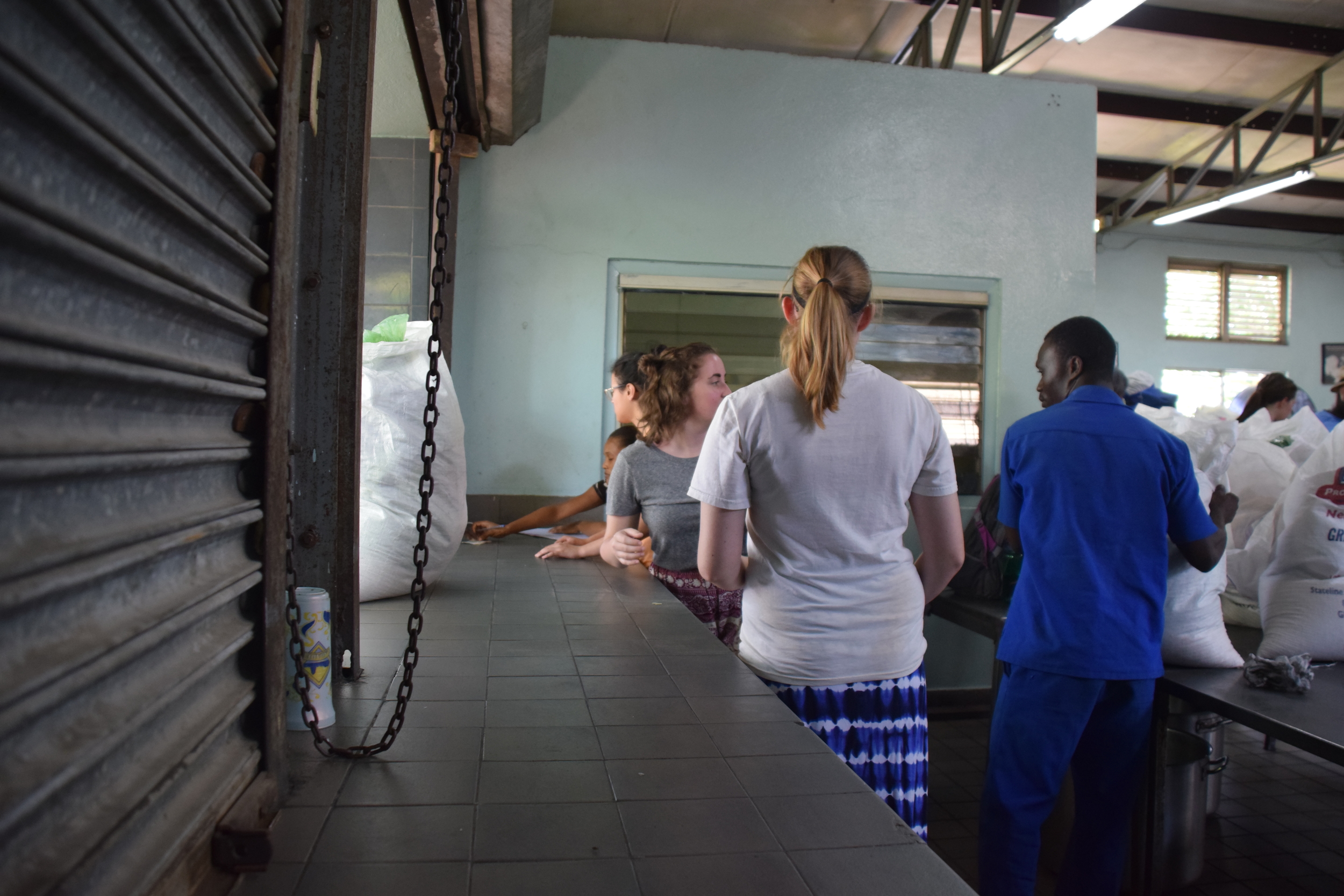Film Screening of "Liberating a Continent: John Paul II and the Fall of Communism"
Free Film Screening of
"Liberating a Continent: John Paul II and the Fall of Communism"
The Saint Benedict Institute and Hope College Markets and Morality hosted a free film screening of Liberating a Continent: John Paul II and the Fall of Communism, on Saturday, January 28, 2017 at 7 p.m. at Hope College’s Knickerbocker Theater in downtown Holland.
A lecture by Dr. Jonathan Pidluzny of Morehead State University followed the screening.
Liberating a Continent, narrated by Jim Caviezel (Passion of the Christ, Person of Interest) and with original music by Joe Kraemer (Mission Impossible: Rogue Nation, Jack Reacher), tells the incredible story of one man’s unwavering faith born of deep personal suffering, his steadfast defense of the dignity of the human person amidst the horrors of Nazi and Soviet Occupation, and his unyielding belief in the spiritual unity of Europe. Liberating a Continent portrays how these convictions toppled an empire and how they remain today the moral foundations for a prosperous and free Europe.
Liberating a Continent was honored with two Emmys at the 58th annual Chicago/Midwest Emmy Awards.
The event was co-sponsored by Hope College Campus Ministries, the Economics and Business, History, Political Science, and Religion departments; the International Studies Program, the Peace and Justice Minor and the Tocqueville Forum.
Photos by Aaron Estelle.
(VIDEO) The Catholic Priesthood: Why Is It Reserved to Men? Catholic-Reformed Dialogue with Sr. Sara Butler and Dr. Jim Brownson
“THE CATHOLIC PRIESTHOOD: WHY IS IT RESERVED TO MEN?”
Talk and Catholic-Reformed Dialogue
with Sr. Sara Butler and Dr. Jim Brownson
The Catholic Church “has no authority to confer priestly ordination on women.” Such was the solemn declaration of Pope St. John Paul II and the beginning of the argument Sister Sara Butler made at Hope College in a lecture on Thursday, January 26, 2017 at 7 p.m. in Winants Auditorium in Graves Hall at Hope College. Sr. Sara Butler argued that the unbroken tradition of the Catholic Church is not discrimination against women but related to the doctrine of Holy Orders as a sacrament. Dr. Jim Brownson of Western Theological Seminary provided a response.
Sister Sara Butler, M.S.B.T., Ph.D., S.T.L. is Professor Emeritus of Dogmatic Theology at the University of St. Mary of the Lake, Mundelein, IL. Sister Sara has served on the Anglican-Roman Catholic International Commission and the International Theological Commission (a papal appointment). She is past president of the Academy of Catholic Theology and is currently a consultant to the U.S. Catholic Bishops’ Doctrine Committee. She is the author of many scholarly articles and of The Catholic Priesthood: A Guide to the Teaching of the Church (Hillenbrand Books, 2007).
Dr. Jim Brownson is the James and Jean Cook Professor of New Testament at Western Theological Seminary (Holland, MI), where he teaches courses on Scripture, church governance, and women's ordination. He’s the author of several books, including most recently Bible, Gender, Sexuality: Reframing the Church’s Debate on Same-Sex Relationships (Eerdmans, 2013).
The event was co-sponsored by Western Seminary and the Departments of Religion and Women's and Gender Studies at Hope College.
Film Screening of Guadalupe: The Miracle and the Message
The Saint Benedict Institute is proud to host a film screening of Guadalupe: The Miracle and the Message, on Monday, December 5, 2016 at 7 p.m. in Winants Auditorium, Graves Hall, Hope College.
The public is invited. Admission is free.
Guadalupe: The Miracle and the Message, narrated by famed actor Jim Caviezel, tells the story of the apparition of the Virgin Mary to Juan Diego Cuauhtlatoatzin in 1531 and traces the history of this transformative event from the 16th century to the present. Featuring interviews with leading theologians, historians and experts on the scientific inquiries into the miraculous image, the film explores both the mysteries behind the image and the continued relevance of the Guadalupe apparition to the modern world.
For more information about the movie, visit the official film website.
(VIDEO) Recap of R.R. Reno's "Restoring Love to the Intellectual Life"
(VIDEO BELOW)
by Carly McShane, ‘17
On Wednesday Nov. 2, at 7 p.m. students, professors and members of the Holland community gathered at Hope College to hear R.R. Reno give a lecture on “Restoring Love to the Intellectual Life”. Dean Marc Baer introduced Dr. Reno (Ph.D. Yale University), the editor of First Things magazine and former professor at Creighton University.
Reno began his lecture by laying out his concerns with our current educational culture. He fears that superficial intellectualism has become the norm and that an attitude of knowingness has replaced truly knowing. Secondly, he is concerned with the age of suspicion and distrust where students are encouraged not to accept any claim without thorough investigation on their own. Reno puts forth that critical thinking has become the goal of higher education, the essence of the intellectual life. Professors and administrator want student to ask questions and think critically rather than present answers to questions of consequence. While thinking critically can be good it must not be overemphasized. Instead, the intellectual must devote herself to truth because larger truths are elusive and we must be “animated by love’s reckless passion for truth”.
Next Dr. Reno pointed us to the post-modern mindset influenced by Jacques Derrida’s method of deconstruction and the materialism of Epicurus and Lucretius. Reno claims that both deconstruction and materialism seek to weaken truth in order to lead people to live more peaceful lives. The skeptic or deconstructionist highlights that fact that if nothing is worth fighting for no one will fight and if nothing is worth sacrificing for then no one will sacrifice. While the materialist claims that everything, even philosophy, is just our physical state, which can be explain by the methods of science. Reno points out that neither of these claims are attempting to be nihilistic, they are simply trying to protect people from disappointment. In other words, don’t hope for too much goodness because the world will disappoint, but if nothing matters we can relax not having to worry about the deep need for meaning in our lives.
Unfortunately, this is the spirit of thought that most often dominates the classroom. Often faculty members want to challenge students on their religious beliefs by filing them with doubt, lacking a deep love for truth. They do this not because they do not care for their students but because having intense, substantive beliefs about truth is seen as dangerous. If we want people to be more tolerant and inclusive then a deep belief is a detriment to their ability to live peacefully in an all-affirming society. Having deep beliefs means you will eventually encounter someone who you do not agree with regarding something of consequence, sexuality and marriage for example. So it would seem that it is the job of our education system to ensure that student do not take their deeply held beliefs with them into adulthood. Professors see this as a positive duty because they are forming students into tolerant, peace-seeking individuals. Reno asserts that we dream of a utopia with loose beliefs and no grasp on truth so critical thinking becomes the ambition of higher education, disenchantment a therapy of the soul, and value is given to developing tolerance rather than cultivating a fierce love for truth. Reno digressed for a moment stating that many could claim that the natural sciences and mechanical professions do lead student to pursue truth. Reno insists that while this is accurate in some fashion, the truth that these fields uncover is existentially inconsequential. For example, “your biology class doesn’t help you know what to say to your dying parent.”
Then there must be a better way to encourage devotion and love of truth. Reno believes that we need to be romanced away from error. He points to the book of Proverbs where a group of men are seduced by prostitutes. Lady Wisdom wants to teach them their error by using arguments but her efforts do not win them over. So she tries a different approach wooing the men with a banquet in her palace and beautiful maidservants to call them in. Reno uses this to say that if we wish to cultivate a desire for wisdom we need to enchant rather than disenchant. We need a greater, truer love to pull us away from our false loves. Enchantment can come from the traditions and rituals of our schools (perhaps professors should wear their robes all the time). Professors who are devoted to their subjects and believe in the truth of what they teach enchant students by inviting them into their discipline. In this world of educational enchantment lectures are performances that draw us in and the books that line our professor’s shelves remind us that our love of wisdom has no end.
So, while we should not rid our institutions of critical thinking it cannot be the goal of education. Critical thinking must take place in the larger context of love and devotion. Instead of leading students towards indifference and tolerance we need a pedagogy of enchantment that looks to the transcendent to seek truth and wisdom.
Wanted: Catholic Chaplain
We are hiring!
Since its inception, one of the Saint Benedict Institute's major goals has been to bring a Catholic priest chaplain to serve Hope College and its 600+ Catholic students. We are overjoyed to announce that we are now looking to hire for the 2017-2018 academic year!
Hope College, located in Holland, MI, was founded over 150 years ago in partnership with the Reformed Church in America. Hope is known for its rigorous academics, dynamic Christian community life, and commitment to ecumenism. The Saint Benedict Institute is an apostolate of the local Catholic parish, St. Francis de Sales Catholic Church, and the chaplain will be an employee of St. Francis de Sales in service to Hope College and the broader West Michigan community.
To download a copy of the job prospectus, click here. The position description is also included below (scroll down). Those wishing to support this mission financially may click here for more information. We thank you for your interest!
Campus Chaplain
Position Description
Mission
The Saint Benedict Institute seeks to promote and nurture intellectual work done from the heart of the Catholic Church, to foster an ecumenical community of Catholic Christians and friends committed to the renewal of culture, and to aid in the formation of intellectually and spiritually mature Christians by making available the riches of the Catholic tradition to Hope College and the wider community.
Background
The Saint Benedict Institute has a threefold mission which is intellectual, spiritual, and ecumenical. We are an apostolate of the St. Francis de Sales Catholic Church in Holland, Michigan, and we serve Hope College and the broader West Michigan community. We sponsor a variety of programs aimed at cultivating intellectually serious Christians, forming students in the Catholic tradition, contributing to the ecumenical mission of the College, and nurturing the hearts of students so that they might learn to love God and their neighbors more deeply. Currently, we host a Catholic Speaker Series, a Catholic-Reformed Dialogue, spiritual retreats, a vocation discernment program for students considering religious life, spring break immersion trips to Haiti and inner-city Chicago, and an annual day of study. We work closely with Hope College’s Campus Ministries and other academic departments to provide a faithful Catholic witness. Please explore our website to see the kinds of things we do.
Description
We are seeking a priest chaplain to help establish and build the Catholic campus ministry at Hope College. On average, twenty percent of the students at Hope College are Catholic, roughly 650 students. Of these 650, we estimate that about 85% do not attend Mass—this is confirmed by the national average (Pew Research) and our own observations. The priest chaplain will be responsible for building a credible Catholic witness on Hope’s campus, one which strengthens the faithful Catholic students, draws in the lapsed Catholics, and embraces the non-Catholic students in ecumenical friendship. This priest would be responsible for forming Catholic students as faithful Catholic witnesses in an ecumenical environment and would work closely with the local Catholic parish and Hope College’s Protestant campus ministers to deepen the commitment of all students to the faith we hold in common. The Catholic chaplain would work to foster a Catholic spiritual rhythm that works in harmony with the ecumenical character of Hope College. Start date would be August 1, 2017
Responsibilities
Celebrate daily and weekend Mass, train altar servers, and cultivate a love of reverent liturgy
Encourage and offer regular Confession
Provide opportunities for Eucharistic Adoration
Lead Bible studies and Catholic devotions (e.g., rosary, Divine Office, processions, etc.)
Lead the Vocation Discernment Program, including weekly prayer and direction
Offer spiritual direction and informal counseling to students
Foster a sense of Catholic community
Bear robust witness to the joy of being Catholic and the beauty of Catholic traditions
Engage in formal and informal ecumenical dialogue on campus and in the community
Train students to engage in peer-to-peer ministry
Organize service opportunities
Supervise lay Catholic volunteers and missionaries (e.g., FOCUS)
Participate in and bless Saint Benedict Institute events
Collaborate with Catholic priests at St. Francis de Sales Church
Partner with Hope College’s Campus Ministry to coordinate efforts
Preach occasionally at Hope College’s chapel services
Partner in Saint Benedict Institute fundraising initiatives
Qualifications
A Catholic priest in good standing
A pastoral vision guided by Evangelii Gaudium
A theological vision that accords with Ex Corde Ecclesiae
A deep love of Scripture and fluency in it (see Verbum Domini)
Solid understanding of faith development and the spiritual needs of emerging adults
Experience working in ecumenical environments and a commitment to the receptive ecumenism St. John Paul II articulates in Ut Unum Sint
Ability to preach well and connect to large and small audiences
Ability to present the faith in a winsome and irenic manner
Fluency in Spanish, while not required, is a bonus
Application
Open applications accepted until the position is filled. Please send all materials to the Executive Director, Dr. Jared Ortiz, at jared.ortiz@saintbenedictinstitute.org. Please provide:
a curriculum vitae,
a list of three references with contact information (one reference should be a superior; another should be a student or parishioner you have worked with),
a list of the five most important books you’ve read with a brief explanation of why,
an answer to the following:
In light of the mission of the Saint Benedict Institute and the unique ecumenical environment of Hope College, how would you help build a Catholic culture that ministers to a community with a wide range of faith commitments? (Please answer in 500 +/- words.)
Jack Mulder Discusses His Latest Book with Catholic Radio's Al Kresta
Hope College professor and Saint Benedict Institute assistant director Jack Mulder was the featured guest September 15 on Ave Maria Radio's Kresta in the Afternoon show with Al Kresta. Dr. Mulder spoke about his latest book, What Does It Mean to Be Catholic?, released 2015 by Eerdmans.
In the News: Jared Ortiz's New Book on St. Augustine's Confessions Featured in Holland Sentinel
The Holland Sentinel recently featured Saint Benedict Institute director Jared Ortiz and his new book on St. Augustine's Confessions. To read the full story, click here or see below.
"You Made Us For Yourself": Creation in St. Augustine's Confessions was released April 2016 by Fortress Press. Dr. Ortiz will speak on the book on October 13 at 7 p.m. in the Maas Auditorium, Hope College. All are invited to attend.
“You Made Us for Yourself: Creation, Worship, and Human Destiny in St. Augustine” with Jared Ortiz (VIDEO)
“You Made Us for Yourself:
Creation, Worship, and Human Destiny in St. Augustine”
Talk and Book Release Party with Jared Ortiz, Hope College professor and Executive Director of the Saint Benedict Institute
Dr. Jared Ortiz, who is a member of the Hope College religion faculty and executive director of the Saint Benedict Institute, spoke about his new book, “You Made Us for Yourself: Creation in St. Augustine’s Confessions,” on Thursday, Oct. 13, at 7 p.m. in the Maas Center auditorium at Hope College. Ortiz’s lecture, “You Made Us for Yourself: Creation, Worship, and Human Destiny in St. Augustine,” explored Augustine's rich understanding of creation as God's gift of a beautifully ordered cosmos which is in dynamic motion back toward Him and whose destiny is to be transfigured through Christian worship.
A video of the lecture is available below.
Jared Ortiz (Ph.D., The Catholic University of America) joined the Hope College faculty in 2012 as an assistant professor of religion. He teaches Catholic studies and is co-founder and Executive Director of the Saint Benedict Institute, the Catholic spiritual and intellectual center that serves Hope College. Ortiz teaches courses on the Incarnation, church history, Catholic Christianity, theological hermeneutics and early Christianity. His scholarship focuses on early Christian theology, especially St. Augustine. He also has scholarly interest in liturgy and Latin patristic thought. Ortiz’s book “You Made Us for Yourself: Creation in St. Augustine’s Confessions” was published with Fortress Press in April 2016.
The event was co-sponsored by the Center for Ministry Studies and the Department of Religion at Hope College.
"Art is a Jealous God" with James Matthew Wilson, Catholic Poet and Villanova Professor (VIDEO)
How does the serious artist represent the religious and spiritual dimensions of human experience, especially in a culture suspicious of art that contemplates the divine? Award-winning scholar and poet James Matthew Wilson, Ph.D. (Villanova University) addressed this question and others in his talk, “Art is a Jealous God: Aesthetic Autonomy and the Claims of the Divine," on September 7, 2016 at Hope College.
James Matthew Wilson is Associate Professor of Religion and Literature in the Department of Humanities and Augustinian Traditions at Villanova University. An award-winning scholar of philosophical-theology and literature, he has authored dozens of essays, articles, and reviews on subjects ranging from art, ethics, and politics, to meter and poetic form, from the importance of local culture to the nature of truth, goodness, and beauty.
Wilson is also a poet and critic of contemporary poetry, whose work appears regularly in such magazines and journals as First Things, Modern Age, The New Criterion, Dappled Things, Measure, The Weekly Standard, Front Porch Republic, The Raintown Review, and The American Conservative. He has published six books, including most recently the major critical study, The Fortunes of Poetry in an Age of Unmaking (Wiseblood, 2015), a collection of poems, Some Permanent Things, and a monograph, The Catholic Imagination in Modern American Poetry (both Wiseblood Books, 2014). Wilson also serves on the boards of several learned journals and societies.
Wilson was educated at the University of Michigan (B.A.), the University of Massachusetts (M.A.), and the University of Notre Dame (M.F.A., Ph.D.), where he subsequently held a Sorin Research Fellowship. He joined the faculty of Villanova in 2008.
The event was co-sponsored by the Religion and English departments at Hope College.
"Raised to New Life: Grace and Divinization" (VIDEO)
On May 7, 2015, director and founder of the Saint Benedict Forum, Dr. Jared Ortiz, was invited to give a lecture, “Raised to New Life: Grace and Divinization,” for a wonderful monthly lecture series, Authenticum, sponsored by Catechetical Foundations.
Haiti Immersion Trip 2016
Mindful of the manifold gifts of God dispersed throughout the world, ten Hope College students and two Catholic leaders from the local parish traveled to Haiti over spring break to learn more about the beauty and wonder of God’s Spirit at work through the people we encountered.
We did not travel as tourists but as guests having been invited to “Come and See.” We understood we were on mission in so far as we love those whom we come in contact with. However, we did not travel as missionaries coming to bring a truth that the persons of Haiti do not know.
We went as students to listen and to learn from the experiences of our brothers and sisters in Christ in Haiti, about how they experience Christ in their life and how Christ gives them hope.
Throughout the week, we met with orphans and sick children at the Missionaries of Charity nutrition center, the severely disabled at the Missionaries of the Poor home, the hungry at the Food for the Poor distribution center, the tireless workers at the orphanage, the talented doctors and nurses at two local hospitals, and entrepreneurs at local businesses. We also had the privilege to worship with Mother Teresa's sisters every day, to walk through Port-au-Prince in the Palm Sunday procession, and to celebrate the Triduum with our Haitian brothers and sisters.
The students who went offered a series of reflections on their experiences and the profound impact the trip had in their lives.
The Trip in Three Words
Eye-opening, Growth, Moving
Beautiful, heart-breaking, soul-filling
Eye-opening, heart-breaking, humbling
Humbling, eye-opening, pivotal
Illuminating, transforming, vulnerable
Unforgettable, thought-provoking, joyful
Humbling, divine, and inspiring
Humbling, introspective, challenging
The Impact in One Sentence
This trip showed me that if you have Jesus you are richer than you could ever imagine and if you have Jesus you have everything you need.
This trip was a slap in the face of the blessings I take for granted, as well as the enormity of God’s love that I haven’t appreciated.
The Haiti trip encapsulates the essence of faith, friends, learning, and serving by meeting with the most unbelievable and inspiring people, and having some of the most humbling experiences that at the end of the day brought us all closer to one another and Christ.
This trip not only broadened my vision of the Church, letting me experience the universality of the Church in a way that will remain with me forever, but it also opened my heart to the most vulnerable among us, helping me to better understand the inviolable dignity of the human person.
Thanks to Haiti, I’ve become more at peace with myself and hold more good thoughts for not myself but for others as well.
This trip had a profound impact on the way that I view the world from the standpoint that these incredibly beautiful people who have almost nothing are still able to work as a community and lend a helping hand when someone is in need.
I have a greater appreciation for the many blessings/struggles in my life and I have gained knowledge about more effective aid to countries in need.
My time in Haiti was entirely eye-opening for me as to the incredible privileges that I have in my own life, the great needs of the world that echo Christ's thirst on the cross and call of each one of us to service, and the universal community that we have through fellowship in one Catholic faith.
Highlights and Stories
One highlight for me on the trip was having Monsignor Pierre Andre Pierre washing Dr. Page and my feet. Not only was the washing of our feet truly a humbling experience, but after he washed them he came back to us. He looked me in the eye and said “God Bless” and finished with a big hug. It was at this moment when I realized that this man is filled with Christ.It felt as if I was in the presence of a Saint. It was a beautiful sight and words cannot describe it. I will always remember that hug and that moment.
When we visited the Missionaries of the Poor, I had the privilege of helping to bathe some of the severely disabled children while others in our group played with other, less disabled, kids. Despite my plans of pursuing a career in medicine, I have very limited experience physically caring for anyone other than myself, and at first I felt very intimidated by the intimacy of helping wash, dry, and clothe a dozen children, whose names I was never even told. After the nurse bathed a child in a tub of soap and water, she would place the shivering, often whimpering child on a table in front of me, where I would dry them with a towel, put a diaper on them, and dress them in the outfits that another nurse laid out for me. As I did this and attempted to playfully talk to the children to cheer them up, I was overwhelmed by the joy that they exuded as they were clothed, comforted, and their fear and feelings of vulnerability faded away. Many of them laughed as I picked them up after having dressed them and moved them to their crib or wheelchair. By the time I was placing the final child in their crib, I was moved to tears remembering Matthew 25:40 "whatever you do to the least of these, you do to me." I had literally clothed the naked and held a vulnerable child, a child made in God's own image who by our world's standards is the least among the people, and my understanding of my dependence on the Lord suddenly made so much more sense than ever before. I will truly never forget the experience I had and the lesson I learned about the simplicity of human dignity that afternoon with the Missionaries of the Poor.
The Apparent Project was a beautiful workshop, store and cafe that displayed many forms of entrepreneurship. It was so inspiring to see people come together for a blood drive hosted by the Apparent Project.
Going to the Missionaries of the Poor on Thursday was one of my highlights of the trip. It was awesome praying with the bothers there and helping them clean and make beds. However, the best part was being able to hang out with a little boy who was blind and in a wheelchair. He was so joyful! And every time I would spin him around in his wheelchair or tickle his neck he would lean back and burst out in laughter. It was so fun and inspiring to see his joy! It was also a very humbling experience feeding the children there.
I had a very difficult experience when we went to an orphanage for disabled children. When we were given a tour, we were led to a room where two little boys with cerebral palsy were lying in a bed together. One of the little boys was moaning and didn’t notice it at first, but at a closer glance I realized that they were covered in flies. I walked over and brushed the flies off and later returned to sit on the bed with them. I didn’t hold either of them because I was scared to hurt them because they both looked so frail. I just sat there and stroked their arms and brushed away the flies. Neither of them said a word, but one looked at me and smiled. It wasn’t the full healthy smile that I’d been so accustomed to seeing on the kids in Haiti, it was more of an attempt at a smile like he was trying it out for the first time. In that moment I was unbelievably frustrated and I wanted to do all I could to make these kids comfortable and happy. I wanted to be able to feed them and give them all the love they deserved but all I was capable of doing at that moment was stroking their arms. The little boy smiled at me a second time, a more self-assured smile and I realized that where I can’t, God can. In that moment I didn’t have the power to fix the brokenness in front of me, but I could show love and trust in God to help where I can’t.
On one of our last days we went to the Missionaries of the Poor where there is home for the mentally and physically disabled. The home had mostly children, but the brothers explained that when people are there, they are there for life. One of the things we did there was help feed the children lunch. A woman gave me a big bowl of some kind of rice porridge and motioned to a boy lying in a crib nearby. One of the brothers came by and told me that the boy’s name was Mario. I wasn’t quite sure how to feed Mario at first. He looked like he was maybe six or seven, and didn’t seem to really be able to use his arms and legs. Eventually he opened his mouth wide enough for me to just put the spoon in and see what he did with the food. He ate it, and I gave him more. For probably half an hour I stood there with a big bowl of porridge, watching Mario slowly chew each spoonful. I talked to him even though he couldn’t understand me or communicate back. But I kept talking and waiting for him to finish each mouthful, smiling at him and wiping up when food fell out. I couldn’t get over how happy he was. I know I was the one giving him physical food, but he was the one with the real gifts. He gave me an understanding of vulnerability that I’ve never known before, the purest example of faith, and best of all a look into the face of Christ hidden in his crippled bones.
The Orphanage of the Missionaries of Charity was the first of many events that cracked my harden shell and left me feeling vulnerable and exposed. Every detail within the orphanage stirred up feelings with a new degree of intensity that in that moment I was unsure how to comprehend them. The moment I looked into the eyes of the first child, I felt my body clench up. It pained me to see a child no more than two years old already carrying such a heaviness of sadness in their eyes. At that moment, I finally understood what it meant when people said that the eyes were the windows to the soul. Immediately I wanted to hold the child, and hoped that within my arms he could feel all the love I had for him. I noticed that many of the children showed no desire to be held when I stuck my arms out. They felt distant and withdrawn, however when I did pick them up, they clung onto to me like their life depended on it. I can only guess how many times they have been picked up to be put down by people who end up leaving them. The turmoil I felt caused by this simple small room of children gave me light as to how important it is to always show love and how wasteful it was to ever show anything but it. These children show me how to never be ungrateful for the love I receive from my family, friends and even strangers. It doesn’t matter if you know the person or not; the importance lies in acknowledging the other person as human and as a child of God that deserves love regardless of any other titles he or she holds. Love, at least to me, is what holds the most value in this world.
Aside from all of the silliness that ensued within the group thought the week one of the most profound moments for me was while playing with some of the toddlers at the orphanage and how incredibly kind and giving they were with everything they had from toys to the snacks that they were given. My heart instantly broke when in the midst of playing with some of the little boys I looked over to see a girl, no older than 3 or 4 years old, rocking and consoling a little boy who was upset. The magnitude of this moment extended far beyond her kind gesture but the fact that in having nothing she was still able to give of herself to comfort someone else.
Jack Mulder on the Journey Home (VIDEO)
Jack Mulder, co-founder of the Saint Benedict Forum and chair of Hope College's Philosophy Department, discusses his journey from the Reformed Church of America to the Catholic Church on EWTN's Journey Home with Marcus Grodi.






























